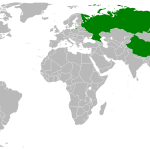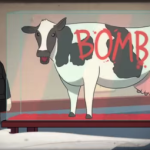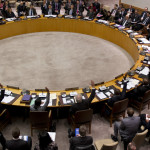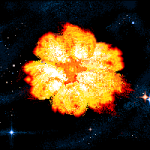DETERRENCE: Triangular nuclear competitions DPRK: Where’s that North Korean ICBM everyone was talking about? GOVERNANCE AND CIVIL SOCIETY: The Fukushima disaster wasn’t disastrous because of the radiation CLIMATE CHANGE ADAPTATION: Livelihood resilience in the face of climate change CLIMATE CHANGE AND SECURITY: Reflections on climate-conflict research: More confusion than knowledge DETERRENCE: Triangular nuclear competitions, Michael Krepon, Arms Control Wonk (9 […]
Archives
A comprehensive agreement for security in Northeast Asia

by Morton Halperin 16 March 2015 Introduction In this Policy Forum Morton H. Halperin writes ‘A new approach is clearly needed to prevent the DPRK from testing and deploying its operational nuclear weapons capability and to persuade it to de-nuclearize.’ Halperin lays out a plan for achieving a comprehensive security agreement in Northeast Asia, ‘one […]
Nautilus Peace and Security Network – 12 March 2015
DETERRENCE: Can a Sino-Japanese war be controlled? DPRK: China offers economic incentives in exchange for S. Korea rejecting THAAD: report GOVERNANCE AND CIVIL SOCIETY: Behind masks, guerilla-style groups scattering leaflets critical of Pres. Park CLIMATE CHANGE ADAPTATION: Climate-related flood risks and urban responses in the Pearl River Delta AUSTRAL PEACE AND SECURITY: It pains me to say it, but Abbott […]
North Korea in 2014: A Fresh Leap Forward Into Thin Air?

NAPSNet Special Report by Peter Hayes and Roger Cavazos 9 March 2015 I. SUMMARY In 2014, North Korea neith…
Nautilus Peace and Security Network – 5 March 2015
DETERRENCE: N. Korea conducts submarine missile ejection test: sources DPRK: North Korea warns U.S. about pre-emptive strike ‘if necessary’ GOVERNANCE AND CIVIL SOCIETY: Small step by Tokyo district could be giant leap for LGBT equality CLIMATE CHANGE ADAPTATION: My country or my planet? CLIMATE CHANGE AND SECURITY: Climate-chaos migrants set to face increasingly closed borders DETERRENCE: N. Korea conducts submarine […]
North Korea’s nuclear force roadmap: hard choices

by Peter Hayes and Roger Cavazos NAPSNet Special Report 2 March 2015 I. SUMMARY In this report Peter Hayes and Roger Cavazos lay out a possible roadmap for North Korea’s nuclear operational force. The authors state: “The laws of physics that determine how nuclear weapons and delivery systems perform are the same in North Korea […]
NAPSNet 26 February 2015
DETERRENCE: Topol, Yars ballistic missile launchers on combat patrol in 6 Russian regions DPRK: North Korea could have 100 nuclear weapons by 2020: U.S. researchers GOVERNANCE AND CIVIL SOCIETY: China’s first lawsuit for environmental damage goes to court CLIMATE CHANGE ADAPTATION: Climate change adaptation assets and group-based approaches DETERRENCE: Topol, Yars ballistic missile launchers on combat patrol in 6 […]
Sanctions easing as a sign of non-hostility

Leon V. Sigal 23 February 2015 This report was a originally written as a paper for the Nautilus-CIIS Workshop on Comprehensive Security Settlement and DPRK Nuclear Issue, Beijing, January 23, 2014 I. Introduction In this Policy Forum, Leon V. Sigal writes that “The DPRK has long sought an easing of U.S. and ‘U.S.-led’ sanctions as […]
Nautilus Peace and Security – 19 February 2015
DETERRENCE: China’s future nuclear force infrastructure: a notional breakout scenario DPRK: The Democratic People’s Republic of Korea outlook for the food supply and demand in 2014/15 GOVERNANCE AND CIVIL SOCIETY: Electricity supply could be maintained without outdated Wolseong and Kori reactors CLIMATE CHANGE ADAPTATION: Services and role of Information Communication Technology (ICT) in India DETERRENCE: China’s future nuclear […]
Nuclear command-and-control in the Millennials era

In this report Peter Hayes writes about the risk of nuclear war and complexity. He states that “very few leaders or even strategic scholars pay attention to the new complexity of the operating environment in which national nuclear command-and-control systems operate, or the new characteristics of the command-and-control systems and their supporting CISR systems that may contribute to the problem of loss-of-control and rapid escalation to nuclear war.
“Today, the underlying ground is moving beneath the feet of nuclear-armed states. The enormous flow across borders of people, containers, and information, and the growth of connectivity between cities, corporations, and communities across borders, is recasting the essential nature of security itself to a networked flux of events and circumstances that no agency or state can control. The meta-system of nuclear command-and control systems has emerged in this new post-modern human condition.”

